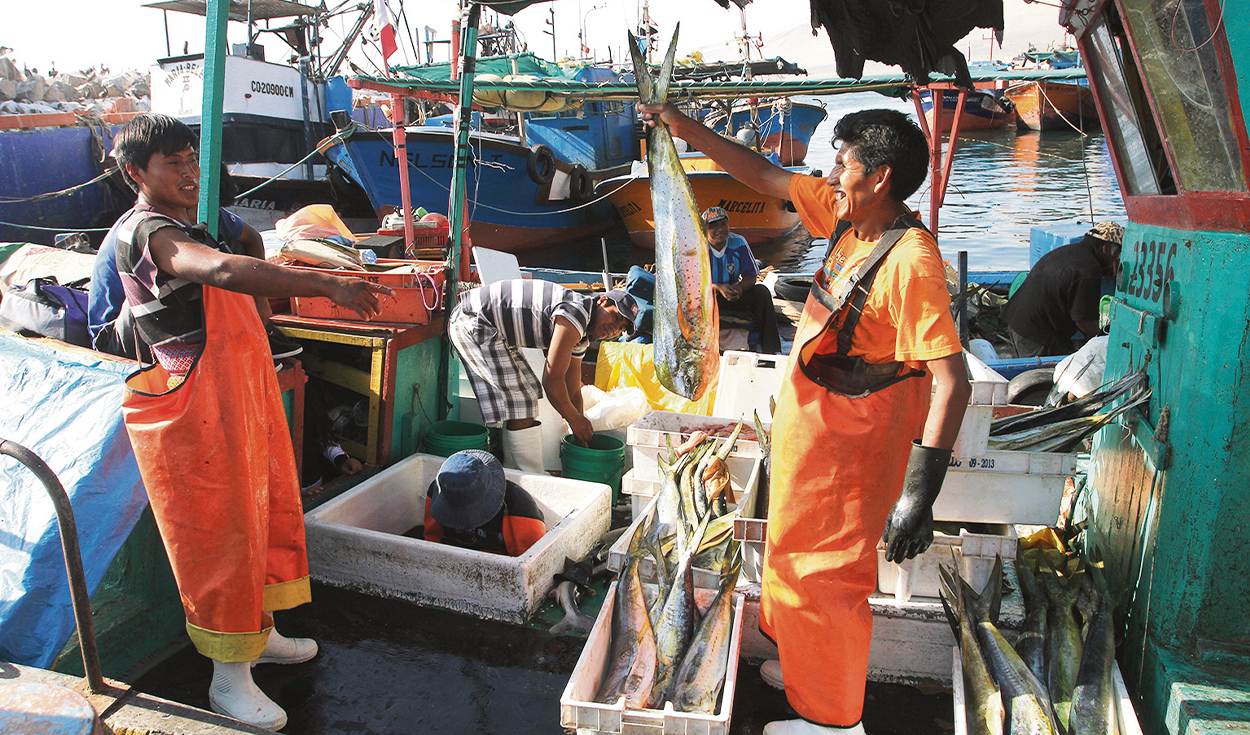
Six months late, the Ministry of Production (Produce) yesterday published the proposed regulation of Law 31749, ‘Law that recognizes traditional ancestral fishing and traditional artisanal fishing and promotes its preservation within the five Peruvian maritime miles’ .
A key aspect that is included and may contribute to fisheries management is that traditional artisanal fishing is defined as that in which manual labor predominates and whose product is intended to supply Peruvian families.
Besides, the predominance of manual labor is defined as those fishing operations that are carried out without the assistance of mechanized fishing equipment and/or systems that involve the casting, closing or collection of fishing gear and gear powered with the support of the propulsion motor of the boat or auxiliary equipment connected to the engine.
While smaller-scale fishing is defined as that carried out by vessels with up to 32.6 m³ of hold capacity, which does use mechanized fishing equipment and systems for the collection of fishing gear or gear, without predominance of manual labor.
Although for Antony Apeño, marine biologist from CooperActionthe publication of this document is an important advance, warns that there is a problem: artisanal vessels are considered those that have 32.6 m³ of hold capacity.
“Although it is true that they cannot use mechanical instruments that industrial fishing uses, they still have great capacity and generate, for example, trawl fishing, which although they use it manually It is still harmful to apply it within the first 3 miles”, he comments.
On the other hand, sector sources informed this medium that another important absence from the regulation is that the obligation for mechanized purse seine vessels to install the satellite tracking system has not been established, which would be vital to ensure that they comply with the prohibition of not fish within the first 3 miles.
Nor does it include the modification of the classification of resources according to their degree of exploitation to include the category of overexploited.
Contributions will be key
Produce has specified that, between September 6 and 29, 2023, the General Directorate of Artisanal Fisheries organized 15 workshops on the law, with the participation of 157 different coastal artisanal fishing organizations, regional governments and other agents of the activity.
Then, between January 23 and February 9, 2024, they organized 22 workshops to disseminate the proposed regulation, in which 200 artisanal fishing organizations participated, with the aim of collecting their contributions for the final text.
The CooperAcción expert points out that most of these meetings were merely informative and there was no space for dialogue and discussion. Furthermore, fishermen were summoned with very little notice, either a day before or the same day. “Many artisanal fishermen comment that they were not allowed to give their opinion, that the industrialists tried to avoid their participation; So, I believe that all the actors involved should be given the opportunity,” he said.
For this reason, Apeño considers that it will be vital for fishermen to participate with their comments and suggestions on this document, which will be received by Produce until next March 20.
“We are attentive to the contributions that civil society, organizations and fishermen will make in order to have a definitive regulation and organize our artisanal fishing,” said the head of Produce, Ana María Choquehuanca, in a local media.
Source: Larepublica
Alia is a professional author and journalist, working at 247 news agency. She writes on various topics from economy news to general interest pieces, providing readers with relevant and informative content. With years of experience, she brings a unique perspective and in-depth analysis to her work.












